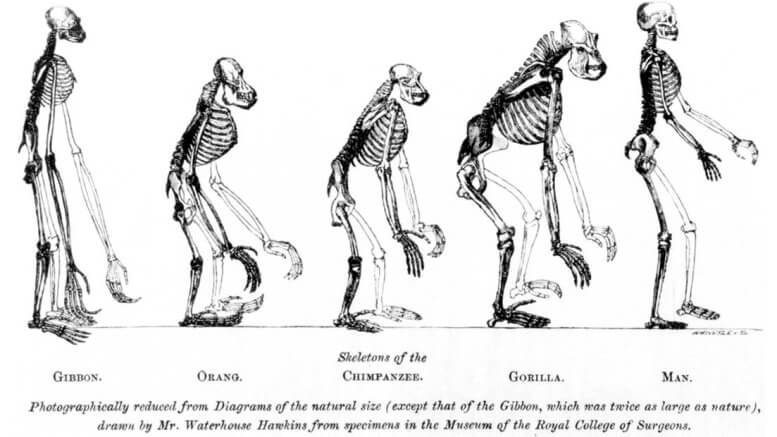Review: How Children’s Books Indoctrinate Children in Darwinism
Dr. Jerry Bergman raises significant concerns about how popular children’s science books present evolutionary theory in his article “How Children’s Books Indoctrinate Children in Darwinism” on the Answers in Genesis website. His review reveals that these books often teach evolution dogmatically and without critical examination, potentially leading young readers to accept these ideas uncritically.
Lack of Balanced Perspectives
One of the primary critiques Bergman highlights is the lack of balanced perspectives in children’s books on evolution. The reviewed books, such as those from National Geographic Kids, present evolution as an unequivocal fact without acknowledging the many well-documented controversies within the academic field of evolutionary theory. This one-sided approach promoting Darwinism fails to expose children to critical thinking or the substantial scientific challenges to evolutionary claims.
Inaccurate and Outdated Information
Bergman points out that some of the information presented in these books is biased, outdated, or incorrect. For instance, in the National Geographic Kids book reviewed, evolution is described in simplistic terms that have been refuted decades ago. The book suggests that all life, including humans, evolved from a common ancestor through natural selection. This concept overlooks the complex scientific debates and the lack of fossil evidence supporting such a linear progression from apes to humans.
Misleading Analogies and Assumptions
The reviewed books often use misleading analogies and assumptions to promote Darwinism and evolutionary theory. For example, the idea that vestigial organs like the coccyx are “useless leftovers” from evolutionary ancestors is presented as a fact. Bergman counters this by explaining the critical functions of the coccyx, which include providing attachment points for muscles and ligaments, essential for bodily functions. Such oversimplified and misleading explanations do a disservice to scientific education and understanding.
Personalization of Evolution
Another issue Bergman notes is the personalization of evolution in these books. Statements like “evolution determined that five fingers per hand are just right for humans” anthropomorphize the process of evolution, giving it intentionality and purpose that it does not possess. This language can mislead children into thinking of evolution as a guided or purposeful process rather than a random and undirected one, as proposed by Darwinian theory.
Darwinism and Ignoring Alternative Views
Bergman emphasizes that these children’s books completely ignore alternative views, particularly the creationist perspective many Americans hold. For instance, the reviewed books teach that humans evolved to become less hairy over six million years. Yet, they fail to address the significant proportion of the population that believes in divine creation. This exclusion not only narrows the scope of scientific discussion but also alienates children from families with creationist beliefs.
Secular Worldview Indoctrination
Bergman’s overarching concern is the indoctrination of a secular worldview through these children’s books. By presenting Darwinism as the sole explanation for the origins of life and dismissing any mention of creation, these books promote a secular understanding of life’s big questions: where we come from, why we are here, and what happens after we die.
Bergman argues that existential questions should be addressed within a religious context, particularly from a Biblical worldview that offers purpose and hope beyond mere survival and reproduction.
Conclusion
Dr. Jerry Bergman’s review, titled “How Children’s Books Indoctrinate Children in Darwinism,” provides a critical examination of how popular science books for children address the topic of evolution. His analysis reveals significant biases, inaccuracies, and a lack of balanced perspectives. He suggests that these books are more focused on indoctrination rather than education. Taking a Biblical perspective, Dr. Bergman emphasizes the importance of approaching the subject of origins with a discerning eye and providing children with a comprehensive understanding that encompasses both scientific debates and religious beliefs.
- Dr. Jerry Bergman’s article “How Children’s Books Indoctrinate Children in Darwinism
- Teaching Evolution in Schools: Answers in Genesis
- Darwin’s Doubt: The Explosive Origin of Animal Life and the Case for Intelligent Design” by Stephen C. Meyer





